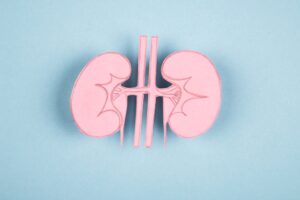The Benefits of a Plant-Based Diet

The plant-based diet is one of the most popular dietary trends in the world today.
More and more people are finding that whole food, and plant-based diets can help them live healthier lives and reduce their environmental impact on the planet.
Whether you’re looking for better health or want to eat healthier, here are some reasons why you might want to consider going vegan or vegetarian:
Lower risk of heart disease

A plant-based diet can help lower your risk of heart disease.
- Lowered LDL cholesterol: The most common form of cholesterol in the blood is known as “bad” LDL cholesterol, which can clog arteries and cause heart attacks.
- A plant-based diet helps to reduce levels by reducing saturated fat intake and increasing fiber intake (which binds to bile acids and prevents them from being absorbed into the bloodstream).
- Lower blood pressure: Plant-based diets are also known to lower blood pressure because they tend to be lower in sodium than their animal counterparts.Sodium content contributes heavily toward high blood pressure levels; reducing it will help keep you healthier!
- Improved glucose control: Studies have shown that those who consume more fruits, veggies, legumes (beans), or whole grains had better glycemic control compared with those who consumed less fruit/vegetables/legumes/whole grains, which means better regulation of insulin production according to body needs instead of overproduction due lack thereof.”
Reduce your risk of type 2 diabetes

The plant-based diet is suitable for people with diabetes. It can help manage blood sugar and lose weight, which can lower your risk of developing type 2 diabetes.
Studies have shown that following a plant-based diet may reduce the amount of insulin needed by as much as 50 percent, making it easier to control your glucose levels.
If you’re trying to improve your health or prevent complications associated with type 2 diabetes, this could be an important benefit to consider when considering how much meat and dairy you eat regularly.
Manage your blood pressure
A plant-based diet is high in potassium, magnesium, and fiber. These nutrients help lower blood pressure by relaxing the walls of your arteries, which reduces the risk of a heart attack or stroke.
Plant-based foods also provide other nutrients that can help balance hormones and control weight.
In one study, people who ate more than 7 servings of fruits and vegetables each day had lower levels of bad cholesterol (LDL) compared to those who ate fewer than 6 servings per day.
Another study found that eating more whole grains lowers triglycerides (fatty substances in the blood), which have been linked to heart disease risk factors like high cholesterol or diabetes type 2 diabetes.
And another study found that people who consumed more plant-based foods tended to weigh less than those who consumed less.
Lower risk of certain types of cancer
In the United States alone, over 36 million people are diagnosed with cancer each year.
The good news? A plant-based diet can help reduce your risk of developing certain types of cancer and even take you down a peg when it comes to dying from them.
Reduce your risk of developing:
- Breast cancer: In a study published in the Journal of Nutrition Research, researchers found that women who consumed more fiber (including whole grains) were less likely to develop breast cancer than those who did not eat enough fiber.Fiber helps keep our gut healthy by helping us absorb minerals like iron and calcium from the food we eat; it also regulates blood sugar levels by preventing spikes or dips in glucose levels after eating compared with processed foods full of refined sugars or carbohydrates which contribute further towards obesity issues as well as causing other serious health concerns such as diabetes later down line after being consumed over a period.
Improve kidney function

The kidneys are vital organs. They filter out waste and help keep blood pressure in check, so they’re crucial to overall health.
While most people aren’t aware of it, a plant-based diet can improve kidney function. And since many illnesses related to the kidneys stem from high blood pressure—including heart disease and stroke—a plant-based diet can also help prevent kidney disease by lowering your risk for developing hypertension (high blood pressure).
Maintain a healthy weight or lose excess weight
A plant-based diet can help you maintain your weight or lose excess weight. Plant-based foods are high in fiber and low in fat, so they’re filling and nutritious.
They also contain plenty of vitamins and minerals that improve your health overall. A study published in the American Journal of Clinical Nutrition found that people who followed a vegan diet were less likely to become obese than those who did not follow such a regimen—and those people tended to have lower BMIs (body mass index) as well!
In other words: if you want to lose pounds without starving yourself, going vegan is an excellent choice!
A plant-based diet is not only good for your health, but for the planet as well
- More than half of global greenhouse gas emissions come from animal agriculture.The U.S. Department of Agriculture estimates that livestock produces nearly 15% of all human-caused methane emissions—the gas responsible for an estimated 20% of climate change damage worldwide and a potent contributor to global warming.
- Eating a plant-based diet reduces your reliance on fossil fuels to produce food and helps conserve natural resources by using less water than meat production requires (for example, beef requires about 10 gallons per pound while cotton requires around 40 gallons per pound).Plant foods also need less land area to grow than meat; this makes them more efficient in terms of their contribution toward protecting our planet’s vital ecosystems such as forests or wetlands against erosion caused by windblown sand or flooding due to heavy rains during storms.”
Conclusion
A plant-based diet is a great way to eat for many reasons, including that it’s also great for the environment. It can help you live longer and healthier with fewer adverse health effects than other types of food.

